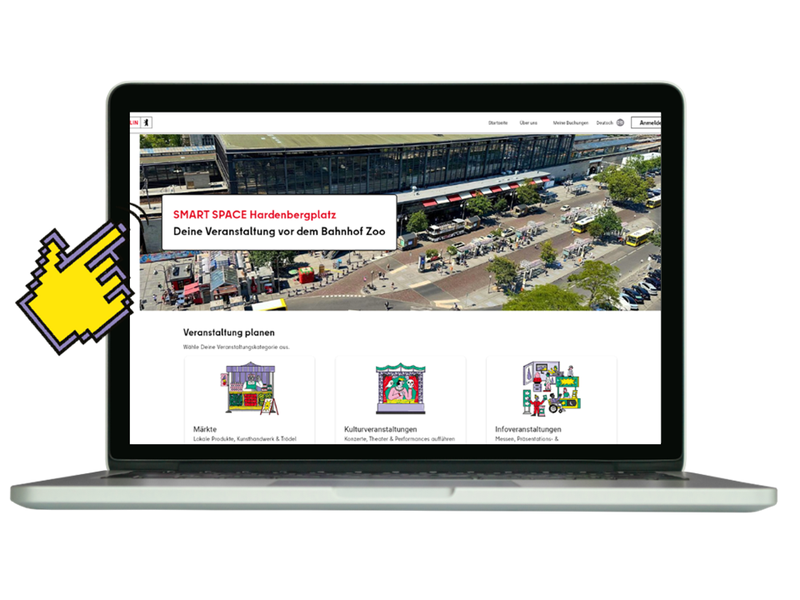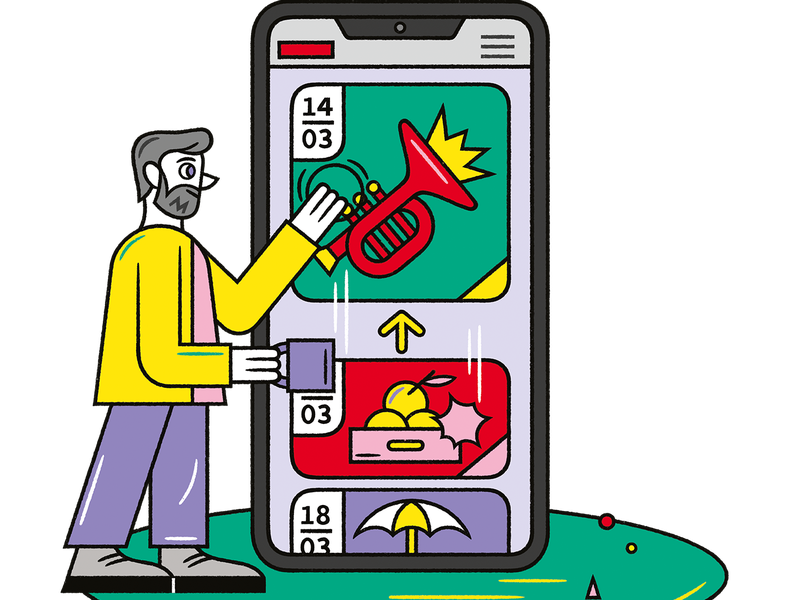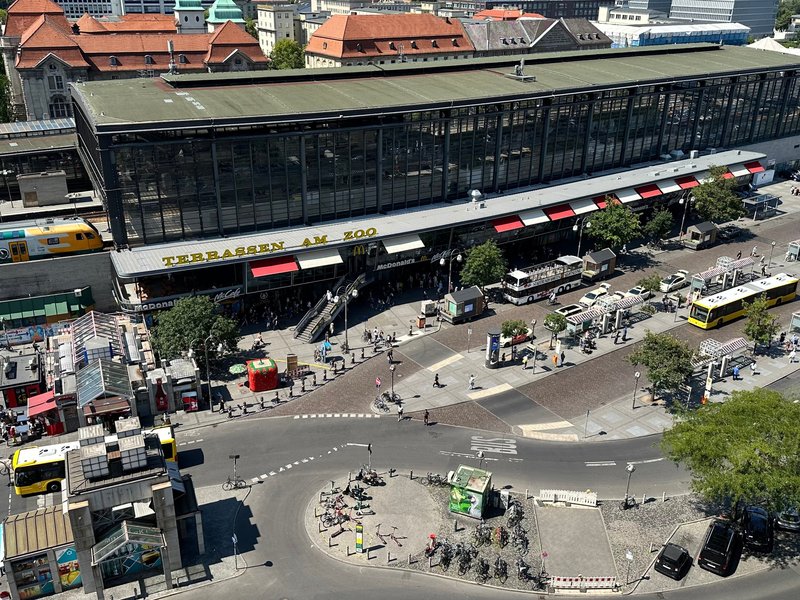The Booking and Negotiation Platform for Public Space Use (VHP)

INSEL-PROJEKT.BERLIN GmbH
Background
Streets and squares like Hardenbergplatz are places many Berliners would like to use - temporarily and flexibly - for their own ideas and initiatives. To make this easier, the SMART SPACE Hardenbergplatz pilot project is developing a prototypical web application that enables straightforward booking of public space.
This platform plays a central role in the project and is being built as a user-friendly web application. It allows for flexible, transparent and community-oriented use of public space for events, markets, cultural formats and much more. By coordinating user demand, availability and administrative tasks, the platform improves how public space is allocated and supports more efficient urban management.
Located in the heart of Berlin’s City West, Hardenbergplatz is a key urban space with high foot traffic and a wide range of competing demands. It functions simultaneously as a transport hub, public square, and venue for events - making it a space where different interests intersect, interact and sometimes are in conflict with each other.
The platform establishes a digital framework for the fair and transparent allocation of public space.

Key Features of the Booking and Negotiation Platform (VHP)
Booking: The platform simplifies requests for using public space - similar to how one might book a car with a mobility app. Typically, special uses of public space - such as converting a parking space into café seating - require a special use permit. A framework permit already in place for the use types offered via the VHP, allows the administration to process requests faster and reduces bureaucratic efforts.
Transparent Processes: Users can track the status of their requests at any time and see when the application has been reviewed and approved.
Automated Assessment: A smart matching algorithm evaluates booking requests based on factors such as type of use, alignment with the common good, and compatibility with existing uses of the space.
Decisions Based on the Common Good: In line with Berlin’s Smart City strategy Gemeinsam Digital: Berlin, the platform prioritises commond good-allocations. It’s not “first come, first served,” but rather: “Who has the more justified and impactful need?” If multiple requests overlap, applications are reviewed using the strategy’s common-good criteria, as well as spatial concepts developed by the State of Berlin and the Charlottenburg-Wilmersdorf district.
Digital and Efficient: Managing Public Space in the 21st Century
The platform is operated by a public welfare-oriented entity. By combining smart digital tools with an innovative governance model, the district aims to organise public space more flexibly and creatively. Reducing administrative overhead frees up capacity for other processes and public services.
Target Users
The platform is designed for a range of actors who organise, use, or manage public spaces:
- Event organisers and market operators: Streamlined, structured digital access for markets, cultural events, and information activities.
- Public authorities and municipal administrations: Support through automated workflows, transparent allocation, and more efficient coordination.
- Citizens and community initiatives: Simplified access to public space for non-commercial, community-driven projects.

Foto: Christian Schappeit
Looking Ahead
Initial applications of the platform were tested during the 2024 Pre-Test phase. Insights from that trial are feeding into ongoing development and refinement. As a next step, short-term uses—such as for logistics and mobility services—could also be integrated. In the long term, the platform offers a scalable model for fair and efficient space management in other parts of Berlin and beyond. It aims to contribute to a smarter, more efficient and more transparent approach to urban governance.

